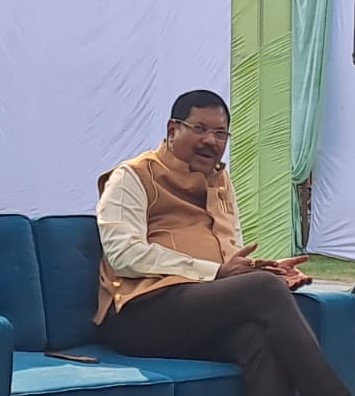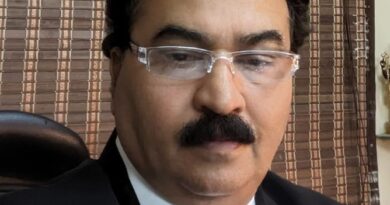Judicial Journey Ends, Social Mission Begins: CJI Gavai’s Farewell
(By Syed Ali Taher Abedi)
New Delhi 23, November,2025: Outgoing Chief Justice of India Bhushan Ramkrishna Gavai hosted an informal lunch interaction with a select group of journalists at his official residence, 11 Tughlaq Road in New Delhi, where he spoke candidly about life after demitting office, judicial administration, and the challenges confronting the justice system.
Informal interaction with media
Justice Gavai described the gathering as an informal get-together and interaction over lunch, signalling a relaxed mood as he prepares to lay down office. He indicated that, having completed his tenure, he now wishes to “cool down” for a while and step back from the intense demands of the office of the Chief Justice of India.
No post-retirement office, focus on tribals
The outgoing CJI made it clear that he does not intend to accept any post‑retirement position, distancing himself from the trend of former judges assuming constitutional or quasi‑judicial roles soon after retirement. Instead, he underlined that his post‑retirement engagement would be centred on tribal welfare, reflecting his long‑standing commitment to issues of social justice and marginalised communities.
Pendency and approach to adjudication
On the vexed issue of mounting pendency of cases, Justice Gavai acknowledged that backlog remains a “huge problem” for the judiciary and a central concern during his stewardship of the Supreme Court. Emphasising the discipline of adjudication, he remarked that a judge must decide every matter strictly on the basis of the papers and material placed on record, underscoring the institutional insistence on evidence and procedure over extraneous considerations.
Shoe‑hurling incident and forgiveness
Referring to the recent incident in which a lawyer hurled a shoe in his court, Justice Gavai disclosed that his decision to forgive the advocate was taken on the spot. He indicated that, in his view, the dignity of the institution is often better served by restraint and magnanimity than by punitive action, especially when tempers are frayed in a charged courtroom atmosphere.
Presidential reference and Justice Sharma query
When asked about timelines for opinions on presidential references, the outgoing CJI stressed that one or two months is rarely sufficient for such intricate constitutional questions and that, therefore, no fixed time limit has been prescribed. Queried about Justice Yashwant Varma Sharma, he declined to be drawn into controversy, responding with a brief “no comments” and moving on.
Collegium, executive, and appointments
Justice Gavai underlined that during his tenure he was “never pressurized” by the executive in matters of adjudication or appointments, reiterating the judiciary’s institutional independence. He pointed out that 107 judges were appointed to various constitutional courts during his term and added that the Supreme Court collegium broadly functions on a 4:1 ratio, indicating the balance typically maintained between elevations from the Bar and from the judicial services.




